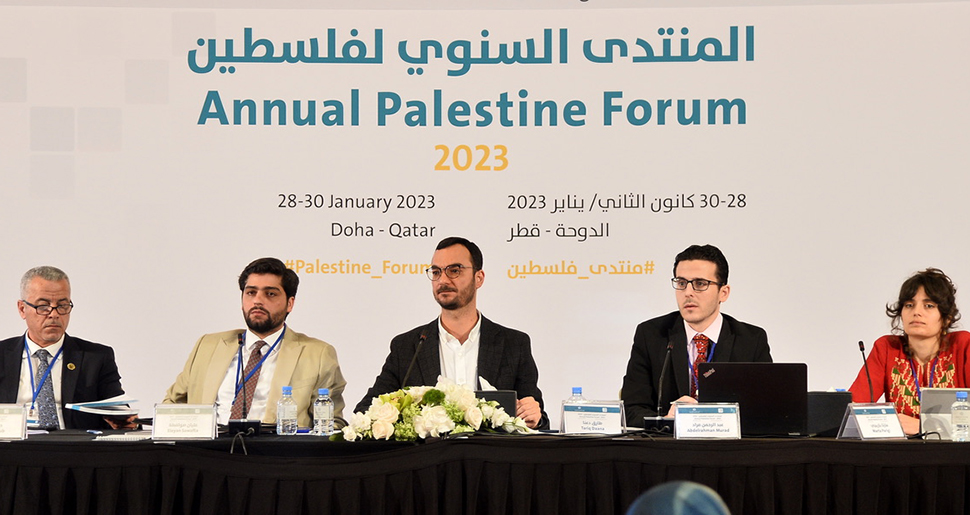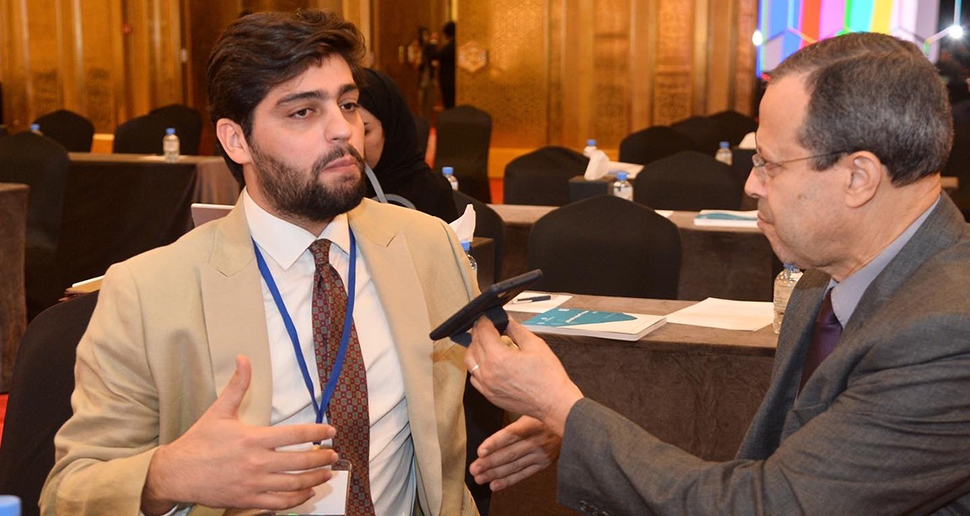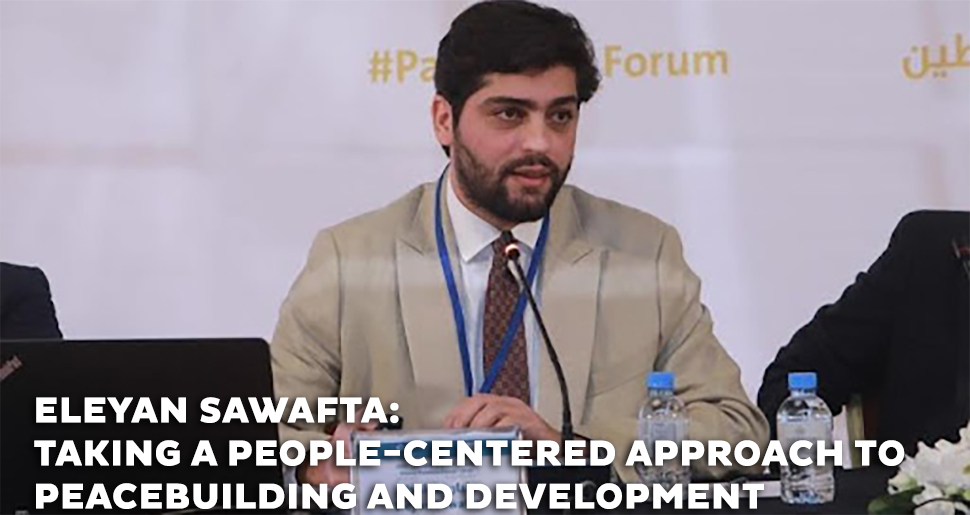Written by Destiny Smith
Eleyan Sawafta, a graduate student in the Peace and Conflict Studies (PCS) M.A. program grew up in Palestine and cites his growing up in a conflict zone as one of the key reasons why he joined the PCS program.

When I asked Eleyan why he felt the program was so essential and valuable, he responded “Because we need more global citizens. This program is not just about theory, it really helps prepare students to become practitioners, peacebuilders, mediators, negotiators, and social workers.”
Eleyan continued,
Our world is quite chaotic with climate change, war, global health, and community issues, and we need people who want to help make change. The PCS program gives you many opportunities to learn how to do so.
Eleyan’s decision to study peace and conflict studies was based on his desire to understand more about the ongoing Israel-Palestine conflict occurring in his country, and he wanted to develop the knowledge and skills necessary to become a peacebuilder. Eleyan stated “I understood the Israel-Palestine conflict from a personal and developmental studies perspective,” but he acknowledged that he had a gap in his knowledge about how to encourage peace processes and resolve land-based struggles.
Since joining the PCS M.A. program in 2021, Eleyan has been coupling information from his studies with his knowledge of the Israel-Palestine conflict, hoping to further understand the context of the conflict, acquire the skills and vocabulary needed to communicate the nature of the conflict to others, and learn the necessary skills to be part of a conflict resolution process upon returning home.

Recently, Eleyan was invited to attend the 2023 Annual Palestine Forum in Doha, Qatar to present his paper “Development and Settler Colonialism: Perpetuating Neo-Colonial Domination and Apartheid,” which will be published in the Arab Center for Research and Policy Studies. Eleyan expressed his goal for this paper was to make a contribution to conflict analysis and encourage peacebuilders to take a “people-centered approach” to development.
Eleyan asserts that one of the most vital steps to understanding a conflict is to listen to the communities who are affected to get their perspective of what is going on and how it is affecting their communities. He believes excluding these communities from the input process can be dangerous, as it can lead not only to a misinterpretation of the conflict, but also to a misuse of resources to help resolve it.
Eleyan argues “As practitioners, we need to understand the context of the conflict first and understand that all disputes are not the same, despite sharing similarities. We have to involve the communities that are affected, ask them about their concerns and basic needs, and then use our tools to propose ideas about development and conflict resolution.”
As Eleyan is preparing to graduate this coming May, I asked him what he gained from the PCS program and what advice he would give to future students. He responded, “The PCS program will give you many opportunities to learn, attend conferences, and accompany professors to workshops, so make sure to take advantage of those opportunities.” He also wanted future PCS students “not to just learn about theory but be prepared to put it into practice.”
Eleyan’s favorite aspect of the PCS program is that it,
First makes you work on yourself as a member of society. The courses allow you to improve your skills and understand intrapersonal and interpersonal conflict first, then they give you the opportunity to go out in the global community and apply your peacebuilding and peacekeeping skills there.
During his time here at UNCG, Eleyan has served as President of the C.O.N.F.L.I.C.T Alliance, as a senator for the PCS Department within the Graduate Student Association and is also a Graduate Research Assistant. Eleyan’s goal post-graduation is to continue working within the local community to promote peacebuilding and peacekeeping techniques, as well as pursue his Ph.D. in a related field.
